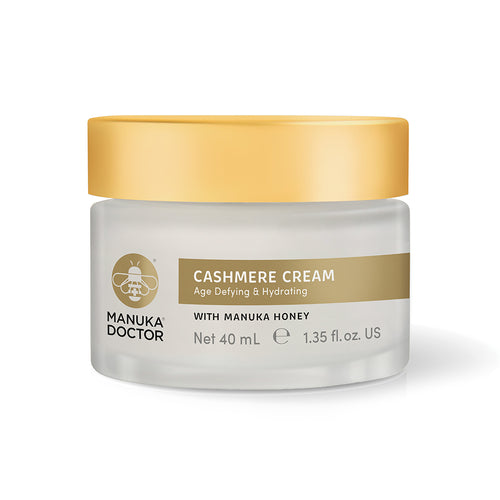Manuka honey is widely known for its special anti-microbial activity to fight against pathogenic bacteria1 because it contains the active ingredient methylglyoxal (MGO).
MGO is a naturally occurring compound derived from dihydroxyacetone (DHA) which is naturally present in the nectar of the Manuka Bush native to New Zealand. But what bacteria does Manuka honey help to kill?
In this blog we will explore how Manuka honey helps to fight against the bacteria Helicobacter pylori, known simply as H. pylori, and how this may improve your health.

But first, What is H. pylori and why is it so bad?
H. pylori is a species of bacteria that live in the sticky mucus that lines the stomach, and can be found in approximated 40% of people in the UK. According to Guts UK, H.pylori normally does not cause any problems, however in 15% of people affected it can cause a number of problems in the gut2.
One of the biggest problems associated with H. pylori is ulcers in the stomach (gastric ulcer) or in the intestine (duodenal ulcer). Ulcers are painful sores that are associated with indigestion and heartburn3, however they become more serious when they bleed or even burst causing severe abdominal pain4.
H. pylori is strongly associated with both gastric and duodenal ulcers, as one study in a Singapore Hospital found approximately 95% of duodenal ulcers and 85% of gastric ulcers occurred in the presence of H. pylori infection5. Eradicating infection of H. pylori has also been found to reduce the risk of bleeding ulcers5, so if you are one of the 40% of people in the UK living with stomach ulcers then targeting H. pylori with Manuka Honey might be the key to improving your gut health.
Manuka honey to fight against H. pylori
The special antimicrobial properties of Manuka honey have been shown to be effective against a wide range of bacterial species including H. pylori.
Back in 1994, one University in New Zealand found that Manuka honey was able to stop the growth of H. pylori after just 72 hours with a reasonable oral dosage that could be achieved in the stomach6.
You see, Manuka honey kills bacteria through a process called ‘osmosis’, where the sugars in the honey attract all the water particles from the infectious bacteria which they need to survive7. Hydrogen peroxide can also be found in Manuka honey too, which is recognised by scientists as a strong antimicrobial agent8.
Conclusion
So, if you are concerned about what H. pylori is doing to your health then Manuka Honey is worth investigating further for its anti-microbial properties. You can also read more about improving your digestive health and our digestive health supplement on our blog.
Remember Manuka Doctor sell honey in different strengths, including daily use, extra boost and max strength.
View the range of Manuka honeys here, and if you need help in selecting the right product for you, feel free to chat to one of the expert team here in the UK, by calling 01455 89 59 59.





